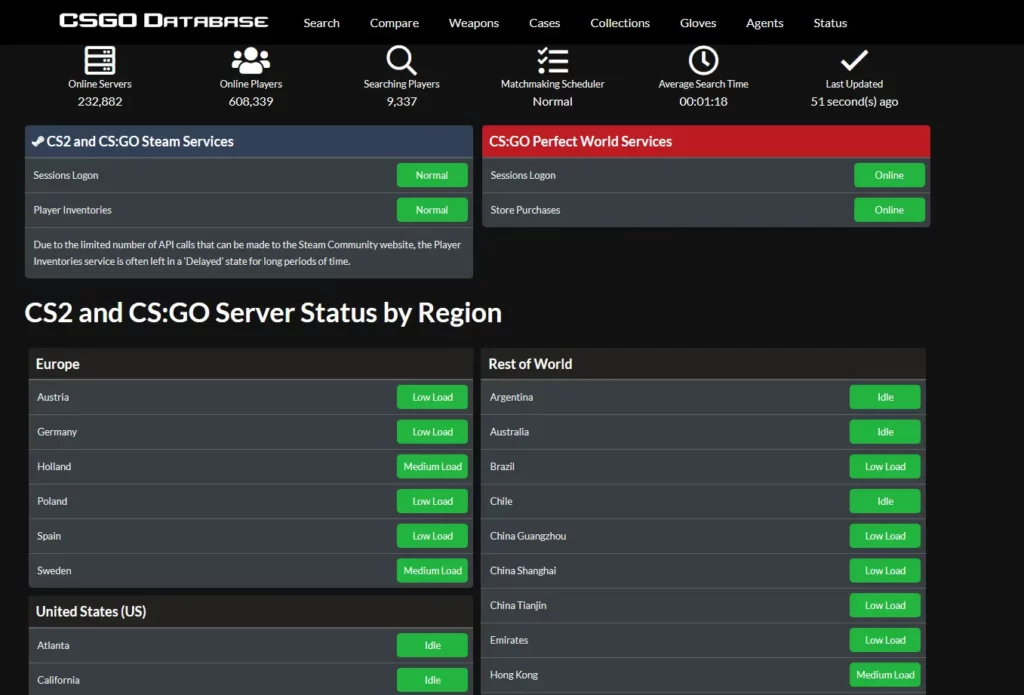Empowering Relationships: BVSM Marriage Services
Explore expert advice and support for successful marriages.
Matchmaking Magic: The Secret Sauce Behind CS2’s Improved Gameplay
Unlock the secrets of CS2’s gameplay enhancements! Discover the matchmaking magic that’s reshaping your gaming experience.
How Matchmaking Algorithms Enhance Competitive Balance in CS2
The introduction of matchmaking algorithms in CS2 has revolutionized the way competitive matches are organized, significantly enhancing the overall balance of gameplay. These algorithms utilize a variety of factors, including player skill levels, win rates, and performance metrics, to create teams that are more evenly matched. As players engage in more balanced matches, they experience a higher level of competition and satisfaction, which ultimately contributes to a healthier gaming environment. By continually adjusting match parameters based on player feedback and game data, matchmaking systems help maintain fairness and keep the competitive spirit alive.
Moreover, the impact of these algorithms extends beyond individual matches. With improved competitive balance, players are more likely to remain engaged and invested in the game over time. This is especially crucial in a game like CS2, where team dynamics play a vital role in winning matches. By ensuring that no single team has a significant advantage, matchmaking algorithms promote a level playing field where skill and strategy determine the outcome. This fosters a sense of community among players, as they can enjoy competitive play without the frustrations that often arise from unbalanced matchmaking.

Counter-Strike is a popular tactical first-person shooter game that has captivated gamers worldwide. Players engage in team-based matches where they can choose to be either terrorists or counter-terrorists. Many players look for ways to enhance their gameplay, and discovering fallen settings can significantly impact performance and strategy.
The Evolution of Matchmaking: Key Changes in CS2
The evolution of matchmaking in CS2 has brought significant changes that reflect both player preferences and advances in technology. Historically, matchmaking systems aimed to pair players based on their skill levels, often relying on simplistic algorithms that didn't consider a player's overall gaming experience. However, recent updates have introduced a more sophisticated approach, leveraging machine learning and player data to create a seamless matchmaking experience. This evolution has led to a system that not only prioritizes skill but also takes into account factors such as play style, communication skills, and past performance in various game modes.
Moreover, the introduction of features such as dynamic skill ratings and regional matchmaking has greatly enhanced player engagement. Players are now matched with others within a closer geographical range, significantly reducing latency and improving overall gameplay. Additionally, the evolution has seen a rise in community feedback being integrated into matchmaking algorithms, enabling developers to adjust parameters based on player experiences. These key changes in CS2 have set a new standard for matchmaking, fostering a more balanced and enjoyable environment for both casual and competitive players alike.
What Makes CS2's Matchmaking System Stand Out?
CS2's matchmaking system is a significant evolution from its predecessor, boasting enhanced algorithms that prioritize player skill and experience. This results in more balanced matches, as players are paired with opponents of similar abilities based on various metrics such as kill-to-death ratios and win rates. Furthermore, the system incorporates dynamic matchmaking ratings (MMR), allowing it to adjust players' ranks more fluidly as they progress, ensuring a fair and challenging gaming experience.
Another noteworthy feature of CS2's matchmaking system is its commitment to reducing toxicity among players. Implementing a robust reporting and feedback system, CS2 encourages sportsmanship and team cooperation by applying penalties to consistently negative behavior. Additionally, the introduction of teammate evaluation after matches allows players to reflect on their performance and interactions, fostering a more positive environment that stands out in comparison to other competitive games.